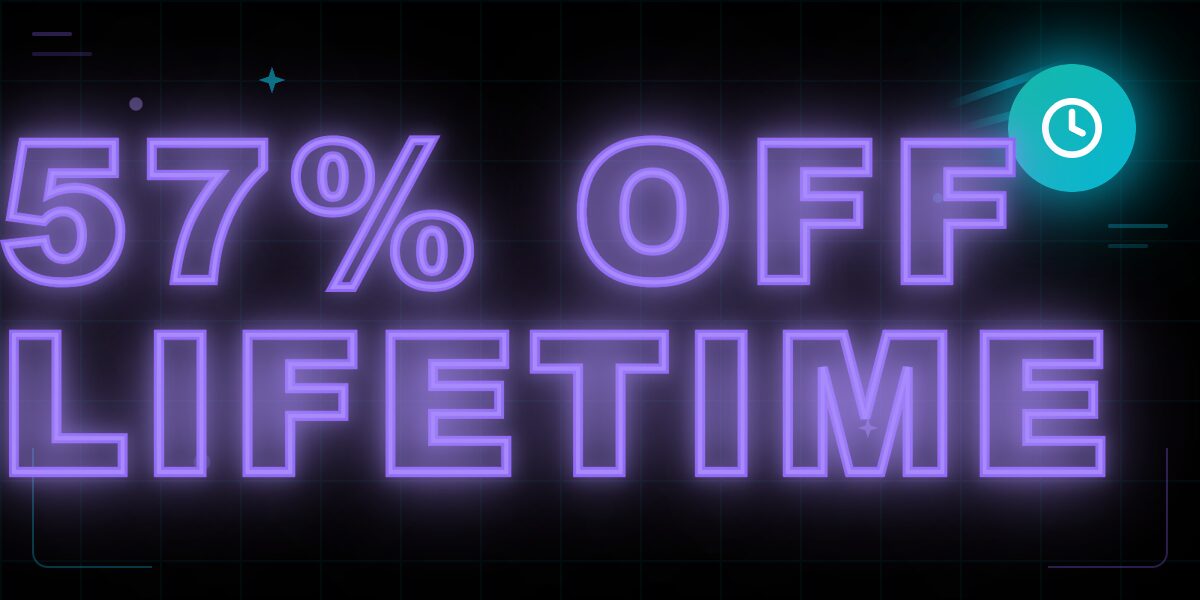Lifetime Deal Extended: Save 57%. One Payment. Zero Renewals.
Overview of Python courses
Python is one of the most popular programming languages in the world, and for a good reason. From artificial intelligence to business analytics, it powers many of the technologies shaping how companies make decisions. It’s also one of the most sought-after skills in today’s job market. If you’re beginning your data career or making a transition, learning Python for data analysis is your first step. It gives you the tools to work with data, uncover insights, and support data-driven decisions—skills every data professional needs.
This is a true Python course for beginners. You don’t need any prior coding experience. You’ll start by understanding what Python is, why it matters in data roles, and how to use it to write your first programs. As you progress, you’ll build practical Python skills, such as working with numbers, text, and lists to store and manipulate data.
Python is one of the most popular programming languages in the world, and for a good reason. From artificial intelligence to business analytics, it powers many of the technologies shaping how companies make decisions. It’s also one of the most sought-after skills in today’s job market. If you’re beginning your data career or making a transition, learning Python for data analysis is your first step. It gives you the tools to work with data, uncover insights, and support data-driven decisions—skills every data professional needs.
This is a true Python course for beginners. You don’t need any prior coding experience. You’ll start by understanding what Python is, why it matters in data roles, and how to use it to write your first programs. As you progress, you’ll build practical Python skills, such as working with numbers, text, and lists to store and manipulate data.
You’ll learn how to write logic into your code using tools like `if` statements and loops. These help you perform repetitive tasks and build systems that can analyze data more efficiently—something every data analyst must know how to do.
You’ll also use Jupyter Notebook, a user-friendly coding environment where you’ll learn Python by writing and running real code, receiving instant feedback along the way. You’ll write your own Python functions to keep your code organized and reusable.
As you advance through the courses, you’ll clean and analyze real-world datasets, including text and time-based data. You’ll also be introduced to object-oriented programming, a foundational concept used in many professional data science projects.
These courses emphasize hands-on practice. You’ll complete guided projects modeled after realistic data analysis tasks—each one designed to reinforce what you’ve learned and help you build a portfolio. These projects will prepare you to speak confidently in interviews and demonstrate your ability to use Python in practical, job-relevant ways.
By the end of these Python courses, you’ll have gained valuable Python skills, used them in real scenarios, and earned a Python certificate to validate your learning and support your next career step.
Python skills you’ll learn
- Programming with Python to perform complex statistical analysis of large datasets
- Using Jupyter Notebook to create and share documents
- Working with text, date, and time data
- Performing object-oriented and functional programming with Python
Outline of Python courses:
Python Basics for Data Analysis [4 courses]
Course 1: Introduction to Python Programming 3h
Develop foundational Python programming skills by writing code, working with variables, and processing numerical and text data.
- Write computer programs using Python
- Save values using variables
- Process numerical data and text data
- Create lists using Python
Course 2: Basic Operators and Data Structures in Python 5h
Strengthen Python fundamentals by using loops, conditional logic, operators, and dictionaries to manipulate data and construct frequency tables.
- Use for loops to repeat processes and conduct data analysis
- Implement if, else, and elif statements in programming logic
- Employ logical and comparison operators in Python
- Develop and update Python dictionaries for data manipulation
- Construct frequency tables using dictionaries for data analytics
Course 3: Python Functions and Jupyter Notebook 7h
Create reusable Python functions and run analyses in Jupyter Notebook to organize code, debug logic, and complete portfolio-ready data projects.
- Write Python functions
- Debug functions
- Define function arguments
- Write functions that return multiple variables
- Employ Jupyter notebook
- Build a portfolio project
Course 4: Intermediate Python for Data Science 8h
Strengthen your Python data science skills by cleaning text data, working with dates and times, and applying object-oriented programming concepts.
- Clean and analyze text data
- Define object-oriented programming in Python
- Process dates and times
Python projects you'll build:
Learn and Install Jupyter Notebook
For this project, you’ll take on the role of a Jupyter Notebook beginner. You’ll learn the essentials of running code, adding explanatory text, and installing Jupyter locally to prepare for real-world data projects.
Profitable App Profiles for the App Store and Google Play Markets
For this project, you’ll be a data analyst at a company that builds free, ad-supported Android and iOS apps. To drive revenue, you’ll analyze real app market data to find app profiles that attract the most users.
Exploring Hacker News Posts
For this project, we’ll be data analysts exploring Hacker News posts. We’ll use Python string manipulation, OOP, and date handling to analyze trends driving post popularity. Check out our Jupyter Notebook Guided Project if needed.
Learning resources for Python

Earn your Python Basics for Data Analysis Certificate
Add this Python certificate to your resume or LinkedIn to showcase your skills and stand out in job applications.
Python FAQ
Why learn Python?
Python is a versatile, beginner-friendly programming language used across data and non-data careers alike. It’s essential for data analysis, machine learning, and automation, but also valuable in roles like marketing, finance, operations, and product management. When it comes to AI, learning Python helps you understand how these modern tools work, solve problems more efficiently, and stay competitive—regardless of your career path.
What is Python used for in data analysis?
Python is widely used in data analysis to clean, explore, and visualize data. Popular libraries like pandas, NumPy, and matplotlib help data professionals turn raw data into actionable insights. Python is also used in data science, machine learning, and automation.
How do I get started with Python?
The easiest way to get started is by taking a structured Python course for beginners like this one. You’ll write real code in your browser, learn essential concepts step-by-step, and build the confidence to work with real data.
Do I need experience before taking this Python course?
No experience is needed. This is a Python course for beginners, so it starts from the ground up. You’ll learn everything from writing your first line of code to analyzing data using Python.
How long does it take to learn Python for data analysis?
With consistent effort, most beginners can complete the basics of this course in a few weeks. You can learn Python at your own pace and apply your skills immediately through real projects.
What jobs use Python for data analysis?
Python for data analysis is used in roles like data analyst, data scientist, data engineer, and business analyst. It’s also useful for marketers, researchers, and project managers looking to work with data more effectively.
Is it still worth learning Python given what AI can do?
Yes, absolutely. In fact, learning Python is more valuable than ever. Python is the backbone of today’s AI revolution—it’s the primary language used to build AI systems, not just interact with them. Most AI tools, machine learning frameworks (like TensorFlow and PyTorch), and automation platforms are written in Python or rely on it.
Even as AI becomes more advanced, understanding Python for data analysis empowers you to ask better questions, customize tools, automate workflows, and make sense of the data behind AI-driven decisions. Whether you’re a beginner or advancing your career, Python skills give you control in a world increasingly shaped by AI—not just access.
The Dataquest guarantee
Dataquest has helped thousands of people start new careers in data. If you put in the work and follow our path, you’ll master data skills and grow your career.
We believe so strongly in our paths that we offer a full satisfaction guarantee. If you complete a career path on Dataquest and aren’t satisfied with your outcome, we’ll give you a refund.
Master skills faster with Dataquest
Go from zero to job-ready
Learn exactly what you need to achieve your goal. Don’t waste time on unrelated lessons.
Build your project portfolio
Build confidence with our in-depth projects, and show off your data skills.
Challenge yourself with exercises
Work with real data from day one with interactive lessons and hands-on exercises.
Showcase your path certification
Share the evidence of your hard work with your network and potential employers.
Grow your career with
Dataquest.




